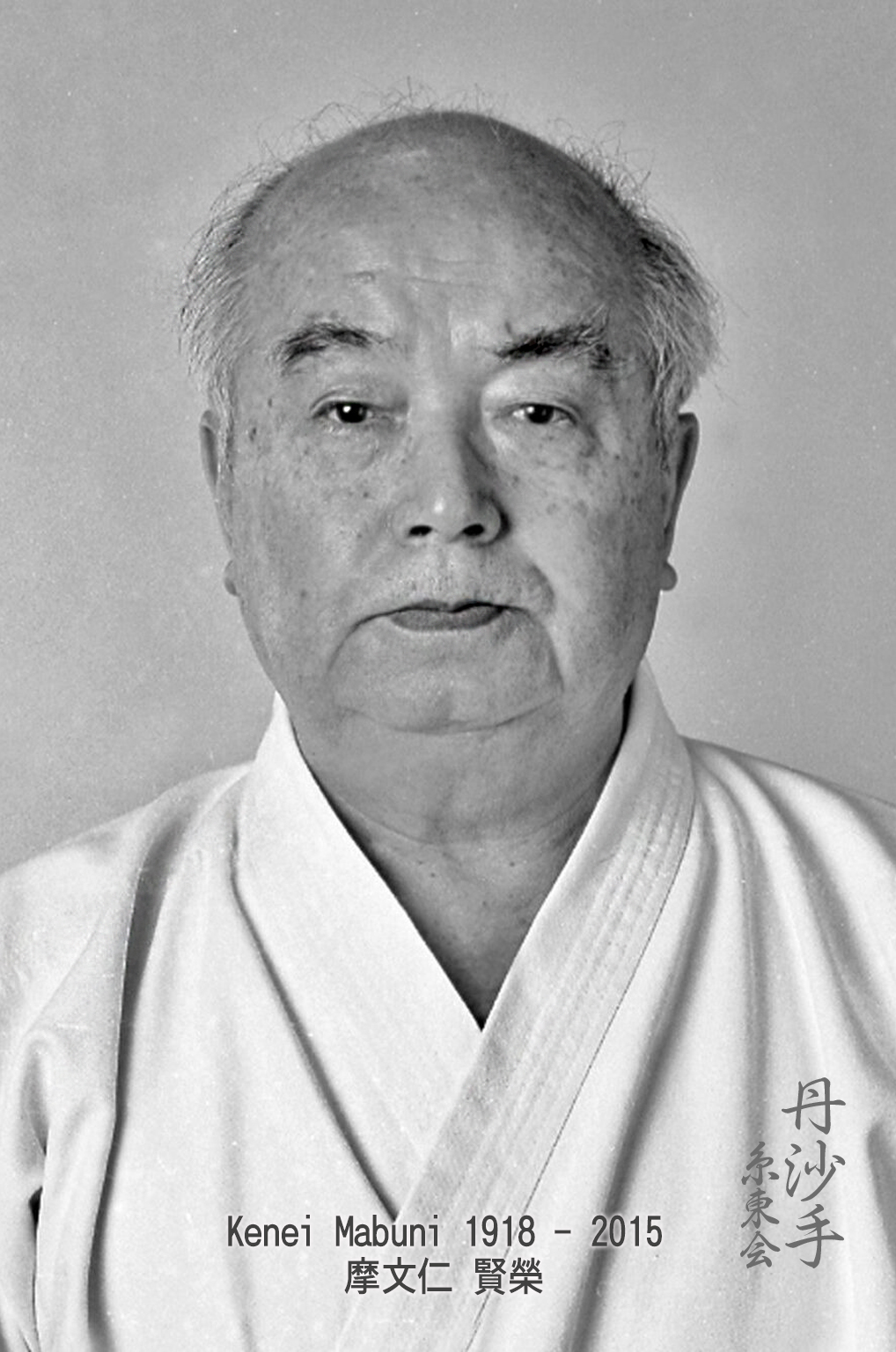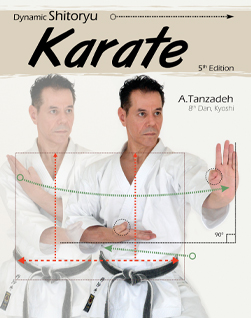Kenei Mabuni – 2nd Sōke of Shitō-ryū Karate-dō
摩文仁 賢榮
February 13, 1918 – December 19, 2015
Kenei Mabuni was born on February 13, 1918, in Shuri, Okinawa, as the eldest son of Kenwa Mabuni, the founder of Shitō-ryū Karate-dō. From a very early age, he was immersed in the world of martial arts under the influence and guidance of his father. In addition to studying karate, Ryūkyū kobudō, and jujutsu, Kenei also trained in kendo and judo during his school years. Notably, he also studied ninjutsu under Seiko Fujita, the 14th generation headmaster of the Kōga-ryū tradition — a rare distinction among modern budōka.
In 1928, when the Mabuni family relocated to Osaka in mainland Japan, Kenei Mabuni frequently accompanied his father during training sessions, seminars, and demonstrations. He also participated in many early Shitō-ryū presentations. In March 1934, Kenwa Mabuni established his personal dōjō in Osaka, called Yōshūkan (養秀館), meaning “Hall for Cultivating Excellence.” Many legendary karate masters visited this dōjō, including Motobu Chōki, Konishi Yasuhiro, Moden Yabiku, and Funakoshi Gichin, giving young Kenei the opportunity to meet and learn from many great pioneers of karate.
After World War II, Kenei Mabuni continued to assist his father in teaching and promoting Shitō-ryū Karate-dō throughout Japan. In 1947, he obtained a professional license in chiropractic medicine, demonstrating his interest in health and the human body. Upon the sudden passing of his father on May 23, 1952, Kenei Mabuni became the 2nd Sōke (宗家) of Shitō-ryū Karate-dō and inherited the Yōshūkan name. With deep dedication to tradition, he committed himself to preserving and spreading his father’s legacy across the globe.
From the 1960s onward, Kenei Mabuni traveled internationally to teach authentic Shitō-ryū Karate-dō. In 1970, at the 1st World Karate-do Championship (WUKO), he performed a public demonstration of the rare kata Nipaipo, passed on to him by Gōkenki, a Chinese White Crane master from Fuzhou. Kenei Mabuni strongly emphasized the spiritual and cultural values of karate-dō. While he did not reject sport karate, he clearly distinguished it from the traditional path, which focused on bushidō ethics, personal development, and budō discipline. Among his technical contributions was the completion of the kata Shimpā, which his father had started, inspired by Uechi-ryū principles.
In 1972, he was officially certified by the Federation of All Japan Karate-dō Organizations (FAJKO) as a first-class examiner. On January 15, 1984, he was honored by the Board of Japanese Martial Arts (Nippon Budō Kyōgikai) with a special commendation for his lifelong contributions to martial arts. On March 17, 1993, in Osaka, he co-founded the World Shitō-ryū Karate-dō Federation (WSKF) and was appointed as its Sōsai (Governor). Throughout his life, he authored multiple books, including technical guides and philosophical writings on the origins and deeper meaning of karate as a budō art.
Kenei Mabuni passed away peacefully on December 19, 2015, at the age of 97. In a formal ceremony on February 28, 2016, his son Kenyu Mabuni was named the 3rd Sōke of Shitō-ryū Karate-dō, carrying on the legacy of both his father and grandfather. Kenei Mabuni left behind a monumental legacy as a teacher, scholar, and guardian of traditional karate. His life’s work continues to inspire countless practitioners around the world to follow the true path of karate-dō — a path of character, humility, and lifelong dedication.






